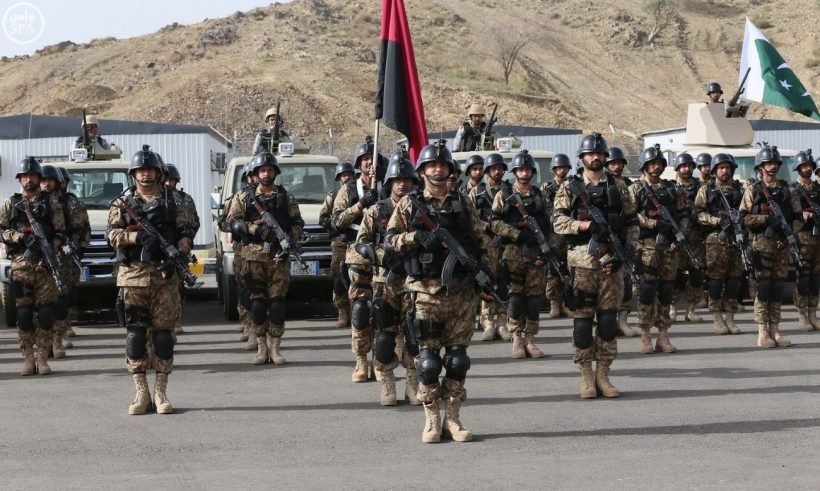Indian Military Revamp on Pakistan’s footsteps: for better or worse?
The appointment of COAS in India has never been a headline like in Pakistan but this time it is coupled with many other changes that make it an important issue to discuss and world to understand. And many of these changes are in the footsteps of Pakistan Military.

India has created a separate department within the Ministry of defense that will be known as the Department of Military Affairs (DMA) and it will be headed by CDS a four-star General who will be reporting to Defense minister along with 3 service chiefs.
All the major militaries of the world have implemented theatre commands structure which offers an advanced level of integration between branches of the military. But for the Indian army that’s way too far to think as they lack a basic level of integration and jointness within their tri-services that are army, navy and air force. This platform CDS was long-awaited and will offer at least basic level integration and better Joint Ops capability to the Indian military machine. With Gen Bipin Rawat over this position will not direct the boss of new COAS but his advice will be considered as binding on him and that will ultimately result in further limiting the importance and areas to maneuver for Indian COAS.
Interestingly this CDS concept is like Pakistan Chief of Joint Staff (CJS) and Pakistan has that for decades. This offers Pakistan a great deal of integration within services. This position in Pakistan has optimized the effectiveness and capability to conduct joint Ops. Pakistan has recently experienced Joint Ops on a larger scale in Sawat and Waziristan operations. However, the world has its advanced version known as theatre command structures and it’s also getting obsolete with the introduction of new warfare types. Interestingly India also recognizes the success of ISPR in a world of information warfare and narrative shaping. Recently Indian Cyber Security department admired the functionality of ISPR. So this is also expected soon that these CDS will have a similar position like DG ISPR under his command.
Apart from this position and administrative change we also need to analyze what Gen Bipin Rawat brings to the office of CDS. He was appointed as COAS by superseding two of its seniors which is a rare sight in India. Reasons given for this were that he brings Counter Insurgency (CI) expertise with himself and that is the first problem as he being CI expert prefers a tactical approach towards enemy rather strategic. His tenure as COAS is evident in such tactical maneuvers. And the second problem is after becoming COAS Gen Rawat accepted to carry the political baggage, unlike its predecessors.
Let’s understand how this happened and why. Indian political elite always wanted to do something sort of surgical strikes and they are talking about it right after Kargil for political gains and to shift media and public focus when required. But Indian army chiefs never did that because they understand that India doesn’t have that decisive military deterrence over Pakistan. Both countries can play hide and seek, promote proxies and keep on creating hurdles for each other. And that’s what max happens unless one has decisive deterrence over others. So those COAS didn’t carry that political baggage and refused when ordered of such adventure.
After the Uri attack, Indian Govt lead by BJP required a face-saving and they pressured Indian military for this. So then Chief for the face-saving only and after so much political pressure only manage to create an illusion of surgical strike in Sept’2016 and rest was Bollywood’s job to make it look real. And that Pakistan denies having taken place inside its territory. But after Gen Rawat assuming office things changed and he agreed to give BJP required political mileage right before 2019 elections.
India initiated an air transgression in Pakistan’s airspace and bombed Balakot and that resulted in an embarrassment for India when the next day in broad daylight Pakistan responded and Indian air force and air defense got exposed. 27th Feb cleared that Pakistan is not deterred by India and can hit back with force at place and timing of their own. Previous chiefs understood their weakness and refused to mix political agendas with military ambitions and maintained a balance.
Now this CDS is expected to continue taking political baggage and that will further lead to some sort of problems, and another issue is his tactical approach and which is expected to reflect now in all three services. Pakistan can expect to have more of both navies playing hide and seek in the Arabian Sea along with already tactically operated Kashmir region by the Indian army. Interestingly the Indian military’s start of taking political agenda is also like following Pakistan military’s footsteps.
But there is one big difference that changes everything, in Pakistan, the military controls the political agenda and they only transfer the amount of weight on the army which they can carry. Unlike India where civilian Govt manages the political side and they are transferring the weight as per their political requirement not as per the capability of the military machine. This is where it all gets wrong for the India military these days.
There are also few takeaways for Pakistan from this appointment as well. Indian Govt has cleared that after the retirement of CDS he will not be offered any Govt position and he also can’t join any private organization for the next 5 years of retirement to avoid any chances of conflict of interest. The Indian defense ministry has also issued a list of desirable outcomes that they expect from this appointment in a span of 3 years.
The writer is a Dy. Director – Sukkur IBA University, Sukkur, Pakistan
Leave a Comment